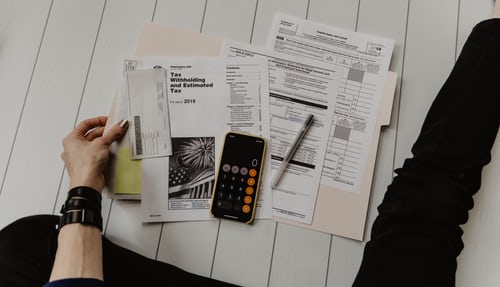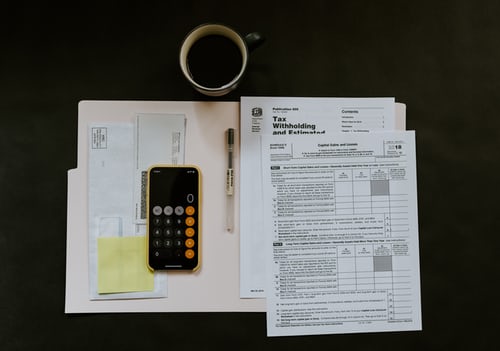If you are a car owner or if you’ve leased a car, you must have some kind of insurance policy attached to it. In case you have an insurance policy attached to your car loan, depending on its type, it will provide compensation against damage or loss, but you might need to take an additional policy, such as GAP. Namely, GAP (guaranteed asset protection) insurance is attached to your car loan, providing cover in the event of total loss. Basically, what it does is pay out the difference between what your comprehensive car insurer pays as the remaining finance amount in the event of total loss. This type of insurance is also known as shortfall insurance, motor equity insurance or total loss assist.
Do you need it?

GAP insurance is not needed in every situation. Whether you need it or not depends on the needs at the time you bought your car and what your motor vehicle insurance covered for you. Also, a GAP insurance may only cover you for a certain amount. So, make sure you assess your needs properly to decide whether you need a GAP insurance policy.
How does it work?
You may find yourself in a situation that your vehicle is written-off while your loan is still active. Naturally, your financier will still want you to pay out the remainder of your car loan. The problem occurs because your comprehensive car insurance policy will cover you for an amount at the time of the loss, but the payout from your insurer might be less than the financed amount owning. This generates a gap or shortfall, which is covered by a useful GAP insurance policy. This can be a substantial amount, since the value of your car often depreciates faster than the loan is paid out.
Is GAP insurance junk insurance?

As we’ve already said, your comprehensive car insurance policy may have provided sufficient cover and in that case you may opt for GAP insurance, since it is designed for those with comprehensive car insurance. On the other hand, if you are without comprehensive car insurance, the gap policy should not have been sold to you in the first place. Still, it could be the case that the policy was added without your knowledge in the sales process or that it was not explained to you to make an informed decision about whether the policy was worth buying.
Can you get a refund?
Luckily, you can, and many people have been able to retrieve lost money from GAP insurance premiums. It is possible to cancel the policy and get a refund, but you should consider hiring experts in the field to help you in this process.
Can you get a refund after a total loss?
Unfortunately, it is not possible. You can’t get a GAP refund if your vehicle is a write-off. If you make a claim against your GAP insurance in the event of a total loss, you won’t be eligible for a refund on the remaining premiums.
Can I get a refund after your loan payoff?

We have already established that GAP insurance can be a shrewd investment in some cases. Still, you need to know that it is possible to get a prorated refund on your GAP coverage if you pay your loan off early. Namely, your GAP insurance coverage premiums are determined on the basis on both the purchase price of your vehicle and the long term. So, if you pay your loan off early, you don’t end up receiving all of the GAP coverage that you purchased, which is why the insurance company needs to refund the unused premium that you have paid for. To receive this refund, you should show your insurer the loan payoff notice and you should know that it applied only to lump-sum GAP insurance payment.
What happens if you sell or trade in your car?
If you decide to sell or trade in the car you bought using a loan, you should still be eligible for a refund of your lump-sum payment difference. The relevant provisions should be stipulated in your contract, which means you need to read it carefully and understand your situation. In most cases, your GAP insurance refund won’t be the full amount, but a partial return, depending on what point after purchasing the car you decided to sell it or trade it in. In other words, the amount will depend on the time window for the loan repayment, the pending loan amount, the odometer vehicle readings and additional documents.
How to calculate refund?

If you want to determine your due GAP refund, you should check the policy expiration date and how much you paid for the GAP insurance and divide that amount by the number of months your policy covers. The due refund is calculated by multiplying the price-per-month by the number of months you won’t be using the premiums. Let’s say you paid $1,200 for a 36-month coverage. Your monthly amount is $33 and if you decide you no longer need GAP insurance after 21 months, you can request a refund for the remaining 15 months of coverage, in which case your refund will be $500. However, you should bear in mind that this only applies in case you paid the full GAP insurance amount upfront.
Full GAP insurance refund

Whether you are eligible for a full GAP insurance refund depends on your policy and your insurance provider. Generally speaking, you should get a full refund on your GAP insurance if you cancel the contract within 30 days of purchasing the policy, but you may be required to pay a cancellation fee.
As you can see, there are ways to get a refund on your GAP insurance policy, but the terms and conditions will vary greatly, depending on the type of policy you opt for and the insurer you choose. That is why it is vital that you first asses your situation correctly and establish whether you need such a policy in the first place. If the answer is positive, you need to compare offers from several insurers and make a smart decision. Also, if you find yourself in a situation that you are eligible for a refund, make sure you know exactly what the procedure is like and how big that refund needs to be.